How IMF/World Bank Policies Paved the Road to War in Ukraine
Déjà Vu All Over Again: From Yugoslavia's Ashes to Ukraine's Fire. IMF is the Pandora’s box.
Languages: UA | RU || BG | CS | DE | EL | ES | FR | HR | HU | IT | PL | RM | TR |
Welcome to the peace initiative for Ukraine in which you can contibute by raising your awareness as well as your consciousness[+] and spirit to the modes[+] of neutrality[*], decency, respectfulness, wisdom[*], objectivity, mastery of the intellect, surrender (ego and mind to God’s will), and finally peace (inner then outer). To properly grasp everything, we recommend reading the articles of this peace initiative in the order that we[*] designed it, which is listed in the CONTENTS. So if you haven’t read the previous articles, we urge you to do it, please. With this article we continue “The Roots of the Crisis in Ukraine” segment in this peace initiative, in which we also discuss Behind-The-Scenes Powerbrokers, Why Did Russia Really Attack Ukraine, How Did Ukrainians Cause the War, and Trigger Events.
In the previous segment on “Behind-The-Scenes Powerbrokers”, we revealed the clandestine ideological if not religious movers and shakers who brought about this war, and in this segment, we reveal on of their instruments for it – the neoliberal reforms.
To ease us into the subject, a joke:
Ukraine goes to the World Bank for a loan. The banker says, "Certainly! We just have a few small conditions: deregulate everything, privatize your grandmother's borscht recipe, cut all public spending..."
The Ukrainian negotiator interrupts, "Wait, are you trying to help us or buy us?"
The banker smiles, "According to page 37, section B, subsection 4a of the agreement... those aren't mutually exclusive." 😊
Trying to explain the root causes of the Ukraine crisis solely through "ethnic hatreds" is like explaining why your computer crashed by blaming angry pixies.
It sounds dramatic, but you might want to check the software... and maybe who installed it😊.
The International Monetary Fund (IMF) and the World Bank caused the crisis in Ukraine that led to the war. In times of economic crisis, in the 1990s, these institutions offered assistance, but not without strings attached. The aid came in the form of structural adjustment program – economic reforms that promised stability and growth but at a very heavy cost. The basic idea behind these programs was simple: reduce government spending, cut public services, liberalize the market, and open up the economy to foreign investment. In theory, these reforms would make the economy more efficient and competitive. In reality, they led to massive suffering.
From austerity measures to privatization schemes and badly designed bailout[+], these policies often resulted in job losses, increased inequality and poverty, and a weakening of the social safety net in Ukraine. The structural adjustment programmes in Ukraine increased foreign control of the Ukrainian economy, whereby Ukraine lost sovereignty, independence, and freedom.
While the IMF and World Bank aimed to foster economic stability, the specific conditions attached to their loans and the rapid implementation of these reforms have exacerbated existing vulnerabilities within Ukraine's economy and society, contributing to the complex set of factors that ultimately led to the crisis and subsequent war. Imposed austerity measures have led to social unrest and contributed to the political instability that culminated in the Euromaidan revolution.
While the IMF and World Bank have played a role in Ukraine's economic landscape, it would be inaccurate to attribute the war to their policies alone. The war's roots are complex and multifaceted, involving political, historical, and territorial factors that go beyond the scope of international financial institutions but it is undeniable that they increased the economic hardship that caused the crisis that fueled the ethnic conflict that led to the war. The claim that their policies "paved the road to war" may be viewed by simple-minded people as a simplification that ignores the broader context of the conflict, which is why we also explain the broader context of the conflict throughout this whole peace initiative, so no ignoring there. The undeniable role of IMF and World Bank in the war in Ukraine has been corroborated by many[+][+][+][+][+][+][+][+].
If you are capable to grasp only one notion from the whole article, then take this with you: IMF is the Pandora’s box1[+][+][+]. World Bank, too.
Both organizations are led by the members of the WEF’s Board of Trustees[+], Klaus Schwab's puppets and globalists (Managing Director of IMF since 2019 is Kristalina Georgieva, before was Christine Lagarde 2011–2019; World Bank President since 2023 is Ajay Banga). Ursula von der Leyen also served as a member of the WEF Board of Trustees until she was selected as EU President in 2019.
IMF and the World Bank core message: “In order to pay your debts, you have to engage in a vicious class war against labor” – lower the wages because the price of labor is the only variable in world trade – “You’ve got to prevent unionization, you’ve got to prevent any kind of pro-labor reform. Your only way of paying debts is to polarize your economy and impoverish your labor force.”
“You should essentially think of the IMF as a small office in the basement of the Pentagon, deciding what countries to support, and what countries are following policies that the United States do not want and therefore wants to wreck. That explains why the IMF will give loans to completely non-creditworthy countries such as Ukraine with no visible means of paying off the debt… The IMF has become a pariah among competent financial analysts throughout the world. The United States is still trying to force countries into the IMF as a means of controlling them”[+] – Michael Hudson, Professor of Economics at the US Kansas University of Missouri, author, and an economic advisor to governments worldwide
One of the first things major areas tackled under the guidance of international financial institutions like the IMF was the large burden of state subsidies, especially costly energy subsidies. Simultaneously, a key policy imposed was price liberalization – removing Soviet-era price controls, which effectively ended the state support that had kept prices for essentials like food, fuel, and transport low. This liberalization, along with monetary instability, fueled rampant hyperinflation (reaching over 10.000% in 1993). Prices rose sharply, wages were frozen (dramatic fall in wages in the public sector to control the state budget deficit), massive layoffs occurred, hospitals and schools lost funding, and pensions were reduced as well as hyperinflation decimated their value. Everyday life became significantly more difficult, especially for the working class. Previously sheltered factories and businesses then had to compete on the global market. But without state protection, many couldn't survive. Thus, unemployment further rose as skilled workers were laid off.
Communities that had once been built around collective labor began to crumble – this wasn't just economic pain; it was psychological. The old system was being dismantled piece by piece. The social contract was broken. With growing social fragmentation and inequality, the sense of unity and shared purpose began to erode.
And as almost always happens in times of economic crisis, people started looking for someone to blame. In multi-ethnic country such as Ukraine, just like in Yugoslavia, that blame easily shifted to ethnic groups. Ethnic tensions didn't come out of nowhere. They were amplified by financial struggles. As the regions began to compete for shrinking resources, regional divisions deepened, and resource-richer regions started to resent sending money to poorer ones and the capital. In return, the resource-poorer regions felt abandoned.
Politicians took advantage of this. Nationalist leaders framed economic despair as a result of ethnic injustice. Instead of blaming the IMF or failed reforms or global capitalism, they blamed each other. Like in Nazi Germany, where nationalists blamed the Jews, Ukrainian nationalists blamed the Russians, just as nationalists in Yugoslav republics blamed each other. People who had lived together for decades began to adopt national identities as a form of protection, totally unaware of “divide and rule” ploy of the Western globalists (neocolonialist) who amplified the nationalist sentiments to amplify divisions so as to make them vulnerable and dependent on their aid that ultimately allows plundering their natural resources. This is most evident with Trump taking advantage of Ukrainian weak position in May 2025 to secure a totally unfavorable mineral deal for desperate Ukraine (framed as a Reconstruction Fund[+]), as well as similar deals made previously with the EU (called a Memorandum of Understanding – MoU – on a strategic partnership on raw materials[+]) and UK (a 100-year partnership agreement for developing a critical minerals strategy[+]).
The economic turmoil made them lose their minds and shift blame on their neighbors. The economic crisis gave them the reason and the neoliberal reforms gave them the trigger. The foreign institutions that claimed to be helping were, in fact, deepening the divisions – perhaps not intentionally, but the outcome was undeniable and fatal.
In Russia, on the other hand, the opposite happened under Putin (2000–2008, 2012-). Unlike Ukrainian government since 2014, Russian government never blamed any ethnic group for its economic crisis and Putin resolved both the financial and the Chechen crisis in a matter of days and so greatly that the grateful Chechens became his best supporters (as evident by voting[+] in elections and in military support[+] as they are ready to die for him in Ukraine). Russian Federation has 83 federal subjects – 21 republics, 9 territories, 46 regions, 1 autonomous region, and 4 autonomous districts[+]. Russia has 160 ethnic groups that speak some 100 languages.
In the 1990s, under Yeltsin, right after Russia opened its doors to Western influences (or predators), it suffered such a social and financial crisis that it went bankrupt but it recovered thanks to Putin, without any ethnic blame-shifting. The only ethnic tensions were coming from Chechnya whose separatists (US-backed jihadists, radical Islamists) were supported by the Mudjahideen funded and idealized by NATO countries (civil war[+][+] 1994–1996 and 1999-2000; in first war, both leaders lost the power there – Yeltsin and Chechen nationalists leader Dudayev who was killed in 1996 while Chechen radical Islamists took power but Chechnya remained a part of the Russian Federation).
Putin solved the economic crisis he inherited from Yeltsin by tackling it at the root causes – he got rid of all the Yeltsin-era debt and mafioso oligarchs[+] meddling in politics (e.g., Khodorkovsky, who therefore exiled and lobby against Putin) rather than blaming any ethnic groups. Putin paid off all debts of all the Soviet republics (including Ukraine) in 2017[+] and declared “total independence” from international banking organizations secretly controlled by the Rothschild family: “Our future generations will be born without Rothschild chains around their wrists and ankles.”[+][+][+][+][+]
When they lost control and power in Russia, Jewish or Zionist Western elites owning mass media and entertainment industry[ꚛ][ꚛ][ꚛ][ꚛ][ꚛ][+][+] planted Russophobic content with character assassination of Putin and smear campaigns against Russia in general, blocking Russian content and culture, save for giving a platform to those who blemish Russia, like US-puppet politician Navalny[+][+][»][»][+][»][+], journalist Dmitry Muratov, and other neoliberal anti-government and anti-Putin opposition figures. But Putin prevailed while all of them lost power or died.
The IMF and World Bank are not neutral actors. Their policies reflected the priorities of the most powerful countries that funded them – primarily the United States, and not just countries but also the ruling globalist elites. Shocking, I know. Next, we'll tell you water is wet😊. These policies were not designed to preserve the unique Slavic system or fragile national unity. They were designed to bring Slavic nations in line with global market norms. Deregulation, privatization, cutbacks, and more cutbacks. In most, if not all, cases, it led to social fragmentation, growing inequality, and political instability. Ukraine was no exception. And who capitalized from privatization? When it comes to Ukraine and Russia, most of them were Jews who became notorious oligarchs. Just saying.
And yet, in the mainstream narrative, we rarely hear this part of the story. Instead, we hear about ancient hatreds, ethnocentrism, and religious divisions, as if these conflicts were inevitable without any help from the West who are always portrayed as some sort of saviors. However, here we points to the deeper causes – how Western global institutions, in the name of economic reform, contributed to the unraveling of a society. We do not claim the IMF or the World Bank plotted the wars. But we do argue that their interventions had consequences. Whether this was due to their incompetence or a devious plan, it is not for us to judge. When you take a country already under strain and impose harsh austerity, the results can be explosive. When you remove safety nets, destroy social protections, and hand power to market forces, the vulnerable get hit first and hardest. The experts should have known better.
Time for a quick chuckle before we proceed:
Why did the IMF economist bring a ladder to Kyiv? He heard they needed help reaching new economic heights, but forgot that sometimes you first need to fix the potholes on the ground floor😊.
With the economic pressures in the 1980s, the sense of unity in the Soviet Union, Yugoslavia and Czechoslovakia had faded, resulting in disintegration of those countries and as inequality and economic crises had grown in the 1990s, trust in the government had collapsed, and nationalism was no longer a fringe ideology but was becoming mainstream. It's important to understand that the seeds of war were planted in this period – not on the battlefield but in boardrooms, financial meetings, and reform packages. The road to disintegration was paved with spreadsheets, austerity budgets, and conditional loans.
Time again for yet another humor break:
A guy asks the IMF for a small loan to start a lemonade stand. They agree, but only if he deregulates his sugar market, privatizes the pitcher, cuts lemon subsidies, and opens the stand to foreign investment... preferably from established multinational beverage corporations😊.
Like in Yugoslavia in the 1990s, in modern-day Ukraine, too, discriminated ethnic groups sought autonomy, which under a repressive regime escalated into declarations of independence and violent conflicts. The NATO interventions in both Yugoslavia[+] and Ukraine cannot be fully understood without this economic background. Because before Ukraine fell apart politically, it was broken economically – not by accident, but by policy. And those policies were shaped by the globalists and their neoliberal capitalist system that prioritizes markets over people, debt repayment over social cohesion, and ideology over lived experience. We urge you to look past the headlines, past the simple explanations, and ask: who created the conditions for this crisis and the collapse? Who pushed the countries toward fragmentation and why? Who benefited from it? Hint: It's rarely the milkman😊.
The economic collapse of Ukraine did more than empty wallets. It emptied trust. As inflation soared and unemployment spread further, the public blamed the ethnic-Russian Yanukovych government instead of the failed Western-imposed neoliberal reforms. When the government lost trust, who did the people turn to? Non-governmental organizations (NGOs) funded and founded by the Western globalists. In this vacuum, nationalist leaders emerged, offering not just blame, but identity. They didn't just point fingers at economic policies. Backed by Western NGOs sowing seeds of division, they pointed at neighbors, turning economic despair into ethnic suspicion.
It’s like blaming your neighbor for the economy crashing… right after he lent you sugar. Suddenly everyone’s a 1930s conspiracy theorist, just one pogrom away from blaming Russians for their allergies and climate change😊.
Hate-driven figures, like Slobodan Milošević in Serbia and Poroshenko in Ukraine, rose to prominence by tapping into these sentiments. Ukrainian nationalists portrayed Ukrainians as victims of a system that favored Russians, especially in regions like Donbas (or Kosovo in Serbia). This rhetoric wasn't just political. It was deeply emotional, resonating with those who felt left behind by the changing tides. Similarly, in Donbas, pro-Russian figures like Zakharchenko and Pushilin emphasized Russian identity and sovereignty, appealing to those who felt their culture and rights were under threat. These leaders didn't create nationalism, but they harnessed it. They turned economic grievances into ethnic narratives, suggesting that prosperity could only return through separation.
For instance, here is the fascist Hitler-like speech[»] by former President of Ukraine, Poroshenko, who declared fascist apartheid policies in a notoriously bombastic political speech on 23 October 2014 when he threatened to oppress and discriminate against children and civilians of ethnic Russians in Donbas (like Hitler did with the Jews): "We will have a job – they won't. We will have pensions – they won't. We will have the support of people – children and pensioners – but they won't. Our children will go to schools and kindergartens, and they will sit in their basements. Because they don't know how to do anything! That's how, that's how we will win this war." He was referring to the Civil War in Donbas 2014-2022[+][+][+] that he launched and conducted with his anti-Russian policies and sending neo-Nazi battalions to Donbas to kill and terrorize ethnic Russian civilians who protested his anti-Russian policies. This “beacon of democracy” clearly didn't know that first, second, and third duty of democracy is freedom and rights for all.
As a result, unity weakened, and the new Kyiv regime created and boosted division. That repressive, discriminatory, ultra-nationalist, regime, which funded and armed neo-Nazis to conduct massacres, caused several regions with affected Russian ethnic minorities to seek autonomy and ultimately separation from the regime that was not just tyrannizing them but also massacring them (by the time Putin sent his troops to rescue in 2022, some 14.000[+][+][+] of them were killed and millions injured, displaced or terrorized[»]). As small as Donbas republics were, mere independence was not an option, so they sought protection from Putin, actively asking to rejoin their motherland Russia.
Western powers observed these developments with interest. Their age-old “divide and rule” ploy was working, but only in Western Ukraine, including Kyiv, where they have ruled supreme since 2014. Hypocritical Western ruling elites disregarded the territorial integrity of Yugoslavia and Serbia by quickly recognizing the independence of Slovenia, Croatia, and Kosovo but when Russia did the same for Crimea and Donbas, they condemned it as evil, exposing their own previous actions as evil as well, in the eyes of most of the world. It's that awkward moment when your "do as I say, not as I do" policy gets called out on the world stage with very large megaphones😊.
They cited humanitarian concerns in Yugoslavia and fighting for territorial integrity, democracy, independence, and freedom in Ukraine but, truth be told, strategic and economic interests played a significant role in their backing. Like with former Yugoslav republics that NATO backed, in Ukraine, too, Western involvement wasn't altruistic. The predatory Western elites, or globalists, saw an opportunity to expand their influence in the Balkans and Eastern Europe, promoting market economies, and aligning new states with NATO and the EU by supporting certain factions and recognizing new borders. Western powers may have inadvertently or deliberately exacerbated tensions, highlighting this complex interplay of internal strife and external interests.
The disintegration of both Yugoslavia and Ukraine wasn't just a result of ancient hatreds or economic missteps. It was also shaped by the strategic calculations of global powers, each seeking to mold the region to fit their vision. Understanding this multifaceted collapse requires looking beyond simplistic narratives. It demands an examination of how economic despair can be weaponized, how identity can be politicized, and how international actors can influence domestic outcomes. Only by acknowledging these layers can we grasp the true complexity of both Yugoslavia's and now Ukraine's disintegration.
The portrayal of both the Yugoslav and Ukrainian conflicts in Western media has been far from neutral. News outlets have often depicted the wars through a simplistic lens, casting certain groups as villains and others as victims. This narrative, while compelling, overlooked the complex historical, political, and social factors at play. Such representations not only influence public opinion, but also shape policy decisions, potentially leading to interventions that may not have been fully informed by the realities on the ground. The state-sponsored Western mainstream media's selective reporting and framing of events served to justify Western involvement in the region. By focusing on alleged Russian atrocities and ignoring Ukrainian ones, the media created a narrative that aligned with the interests of powerful nations rather than presenting an unbiased account of the conflicts.
This media-driven narrative, or info warfare, paved the way for NATO's intervention both in Yugoslavia in 1999[+] – when the illegal NATO bombing campaign launched without authorization from the United Nations Security Council was presented as a humanitarian effort to stop ethnic cleansing in Kosovo – as well as in Ukraine. The only difference is that NATO officers are deviously acting in Ukraine as alleged “trainers,” “supporters,” “arms suppliers,” and “sponsors,” and wearing Ukrainian uniforms because otherwise their intervention would be again exposed as illegal and thus risk public support for Ukraine.
NATO’s covert military actions in Ukraine violate international law as it lacks the necessary legal backing and bypasses established international protocols. The consequences of the NATO intervention in Ukraine since 2014 are severe. Ukraine first lost Crimea, then also four other regions, but most importantly, it lost countless precious lives and caused enormous suffering for millions of Slavs, while Jewish* ruling elites in Ukraine line their pockets. Not to mention also the loss or damage of an enormous amount of civilian infrastructure and long-term economic damage. Western meddling under the guise of humanitarian intervention, it is argued, allows powerful NATO nations to act unilaterally under the pretext of moral responsibility.
* It is very peculiar that Christian and Slavic Ukraine is run by Jews – at least four ethnic Jews (not Slavs, not Christians): Zelensky, the Head of the Office of the President Andriy Yermak[+], ex-PM, Defense Minister Denys Shmyhal[+][+][+][+], and Kyiv mayor (former boxer) Vitali Klitschko[ꚛ][+].
There are also many other covert or possible Jews (not Christians in a Christian country; evident also by their role in advancing laws to ban the Ukrainian Orthodox Church), such as possibly the Head of Military Intelligence Kyrylo Budanov (celebrating Hanukkah[+][+], attending a Purim celebration in Kyiv with other Jewish leaders[+], Chief Rabbi of Ukraine blessing[+][+] him before Yom Kippur), Ukrainian chief propagandist and the advisor to the Head of the Office of the President of Ukraine, Mykhailo Podolyak (his surname is common among Jewish families from Podolia region, which used to be a center for Jewish religious and cultural life; hiding his ethnicity and religious affiliation is telling because Christians and ethnic Ukrainians have no reason to hide it, as well as his ardent advocacy for Jewish causes[+][+][+] while only criticizing Christians[+][+][+] and even the pope himself[+][+][+][+] as well as publicly endorsing and justifying[+][+][+] the ban on the Christian church UOC-MP; there is no baptismal records, church marriage certificates, sacramental references or social media posts that confirm his or his family’s Christian affiliation, which can only mean he is not Christian), and Chairman of the parliament Ruslan Stefanchuk (no baptismal records, church marriage certificates, sacramental references, or Christian-related social media posts exist for him or his family, so he is definitely not Christian – rejecting Jesus). But also many other government officials are either Jewish or partly Jewish, such as, former President Petro Poroshenko[+][+][+][+][+][+], opposition leader Yulia Tymoshenko[+][+], former Prime Ministers Arseniy Yatsenyuk[+][+][+] and Volodymyr Groysman[+], former Minister of Defence Oleksii Reznikov[+], former Zelensky's First Assistant and adviser Serhiy Shefir, and others[+]. And all presidents[ꚛ] have been Jews despite Ukraine being Slavic and Christian. This is odd because according to the last census, ethnic Jews made up only 0,3% of the population[+].
In examining the role of media and the legality of NATO's actions, it's crucial to question the narratives presented to us. Understanding the complexities of the conflicts requires a critical look at how information is disseminated and the motivations behind international interventions. By learning lessons from Yugoslavia, we may learn from the past so as to approach future conflicts, such as this one in Ukraine, with a more informed and ethical perspective. Among many other justifications across the globe, the humanitarian justifications presented for NATO's intervention in Yugoslavia[+] and WMD justifications[+] presented for its intervention in Iraq have already been exposed as illegal and wrong, which is why we need to critically examine the NATO intervention in Ukraine, too, before it is too late.
Our critical examination challenges the narrative that the intervention is solely motivated by a desire to defend Ukraine's territorial integrity, democracy, independence, and freedom. Underlying strategic and economic interests, it claims, have played the main role in the decision to engage militarily. The Yanukovych government's resistance to broader political and economic reforms as part of an unfair and anti-Russian European Union–Ukraine Association Agreement[+] was a central factor in NATO's decision to intervene, this analysis asserts, by orchestrating first the protests followed by a so-called revolution (de facto a coup) in 2013-2014 and then provoking Russia to intervene militarily so that they could launch a war to recapture Donbas and Crimea. Like anywhere else before, in Ukraine too, Western or NATO intervention is not really about democracy or territorial integrity or humanitarian concerns but mainly about integrating Ukraine into the Western neoliberal order, just like they did with former Yugoslav republics, which have faced significant political and economic challenges, including issues related to governance, national identity, and economic development. Rather than stabilizing the region, these Western interventions intensified existing tensions and contributed to long-term instability.
We emphasize the importance of critically assessing the motives behind foreign interventions. The public should base their support for a war effort based on true rather than false intentions. We caution against accepting alleged moral justifications at face value, urging a deeper examination of the strategic interests that may drive such actions. By understanding the complex interplay of moralizing rhetoric and geopolitical strategy, we can better evaluate the true impact of Western interventions in Ukraine and then make an informed decision about our own actions.
Broad Western public solidarity for Ukraine has been based on moral grounds only because NATO propaganda, according to this view, has presented this conflict as an unprovoked Russian invasion led by an evil Russian wannabe imperator Putin, which cannot be further from the truth. In fact, it was Western globalists, or neocolonialists, who invaded Ukraine first in 2013 by funding and orchestrating a violent overthrow of a democratically elected government and undemocratically installing Western puppets into a new anti-Russian regime.
It is crucial to recognize the manipulation of humanitarian rhetoric for political ends. This dangerous tendency allows powerful nations to use humanitarian justifications as a veil for pursuing their own geopolitical and economic interests. In the case of Yugoslavia[+], the Western military alliance NATO framed their intervention or bombing as a moral imperative to stop human rights violations and prevent a humanitarian disaster, but this rhetoric served as a cover for deeper, more strategic concerns such as expanding influence in the Balkans, securing economic interests, and shaping the post-Cold War global order. The military intervention, despite its high moral claims, was not an isolated humanitarian effort but part of a larger geopolitical agenda. The narrative surrounding countless NATO interventions from the 1990s in Yugoslavia until now in Ukraine often distorts the public's understanding of events so as to garner public support. Media outlets play a key role in framing conflicts and shaping public perception.
By simplifying complex issues into moral binaries of good vs. evil, they obscure the real power dynamics at play. The portrayal of Russia as the villain and the Ukrainians as innocent victims concealed the broader international forces and historical factors that contributed to the conflict. By presenting a black and white version of events, the Western media helped legitimize the Western intervention and deflected attention from the political and economic motivations behind it. This type of framing not only misleads the public, but also weakens the ability of citizens to critically assess such actions.
The manipulation of public opinion through selective reporting, strategic omissions, and emotional appeals can allow governments to justify actions that would otherwise be deemed unacceptable. This is a recurring pattern in international politics, most notably in Yugoslavia. When powerful nations intervene, they often do so under the guise of humanitarianism, but the true drivers are economic, strategic, or ideological considerations that serve their own interests.
The lesson here is clear: We must remain skeptical of humanitarian rhetoric used to justify military interventions. Just because a war is framed as a noble cause does not mean it is free from ulterior motives. We urge you to critically assess the political context, the parties involved, and the underlying goals of intervention. By doing so, we can begin to see through the moralizing language and uncover the true nature of these interventions.
A vital lesson could have been learned already from the Western intervention in Yugoslavia in the 1990s – namely, the recognition that Western interventions do more harm than good. The NATO bombing campaign[+] in Serbia, which was presented as a way to protect civilians (ethnic Albanians in Kosovo) and stop atrocities, ultimately killed Serbian civilians and had devastating consequences for the people of Yugoslavia. The absurdness of killing civilians to protect other civilians is further amplified by the fact that the bombings also destroyed vital civilian infrastructure, including schools, hospitals, and power plants, exacerbating the suffering of the very civilians the intervention was meant to protect. This underscores the tragic irony of how a so-called humanitarian intervention led to greater instability and long-term harm to the population.
This brings us to a broader warning about the consequences of foreign intervention – that they can exacerbate the very issues they allegedly seek to resolve. Interventions, even when done with the best of intentions, can destabilize countries, fuel violence, and prolong suffering. By ignoring the intricacies of local dynamics and the historical context of conflicts, foreign interventions can create power vacuums, empower corrupt political elites, and trigger nationalist sentiments, all of which can lead to more violence and instability, as evidenced in nearly every country that NATO powers intervened in, from Yugoslavia, to Syria, Libya, and Ukraine.
This is not just a critique of the Western response to Ukraine; it is also a broader call for a more critical analysis of all international interventions. It stresses the importance of understanding that every intervention has consequences that can reach far beyond the immediate crisis. When powerful nations intervene in the name of humanitarianism or democracy or independence or freedom or whatever excuse, they often leave behind a trail of destruction that takes decades, if not generations, to repair. This is because their ulterior motives were immoral.
The bombing campaign[+] in Yugoslavia violated international law, specifically the United Nations Charter, which prohibits the use of force except in cases of self-defense or when authorized by the UN Security Council. The NATO intervention was carried out without such authorization, highlighting the dangerous precedent it set for future interventions, such as in Ukraine. If NATO had the right to help Kosovo gain its independence, then by the same standards, Russia had the right to help Crimea do it, too. Russia did it by not even firing a single shot while NATO bombed[+] Serbia. This NATO's violation of international law underscores the selective application of legal principles by powerful states when it suits their interest.
The disregard for international law in Yugoslavia's case[+] should serve as a warning of how the rule of law can be undermined by powerful nations that act outside established frameworks of accountability. The Yugoslav incident should have served as a cautionary tale, illustrating the dangers of using humanitarian language to mask political and economic motivations, but this lesson was lost on most of the public, perhaps too busy making a living to take time to draw lessons from it. It's hard to study history, let alone international legal precedent, when you're trying to figure out how to make your paycheck stretch further than a pair of well-worn flannel shirts😊.
The lesson from there, but also from Iraq (false pretext[+] for invasion – WMD) and many other wars thereafter, should have been to critically question the narratives presented by governments, the media, and international institutions. By remaining vigilant and skeptical, we can avoid falling prey to the manipulation of public opinion and better understand the true drivers behind intervention.
The lessons from Yugoslavia are relevant not just for understanding past conflicts, but for shaping how we approach global crises and foreign interventions in the future, including now in Ukraine. The key takeaway is clear: In international politics, the rhetoric of humanitarianism, as well as other alleged moral motives such as democracy, independence, or freedom (as with the case in Ukraine), should always be scrutinized, as it may serve as a cover for actions that ultimately undermine the very principles of peace, justice, and human rights.
In conclusion, by comparing the war in Ukraine with the wars in former Yugoslavia, and exploring the complexity surrounding the disintegration of both Yugoslavia and the Soviet Union, it becomes clear that the situation is far more nuanced than the simplistic narratives often presented. Just like in Yugoslavia, it was the failed reforms imposed by the IMF (the International Monetary Fund) and the World Bank that caused such hardship that the public blamed the government and revolted against it, which led to division and this war.
We've examined the economic pressures of neoliberal policies, the rise of nationalism fueled by economic hardship, the role of Western powers in shaping the conflict, and the manipulation of media narratives that obscured the true motivations behind international interventions. Our critical analysis reveals the dangerous use of humanitarian rhetoric to justify political and economic interests and how such interventions often lead to long-term instability and suffering. It forces us to question the role of powerful nations in global conflicts, urging us to look beyond surface-level explanations and understand the deeper, often hidden forces at play. The lessons learned from the tragic chapter of history in the Balkans are crucial for understanding current international relations and foreign interventions in Ukraine.
If you found this analysis thought-provoking, we encourage you to dive deeper into our peace initiative and form your own informed opinions about the war in Ukraine. Please like this article if you found it valuable, and don't forget to subscribe to our channel for more insightful content. Thank you for reading.
Thank you for reading this article and participating in this peace initiative by raising your awareness and, hopefully, your consciousness and spirit. To properly grasp everything, we[*] recommend reading the articles of this peace initiative for Ukraine in the proper order, which is listed in the Contents. So if you haven’t read the previous articles, we recommend that you do. This article is part of the “The Roots of the Crisis in Ukraine” segment. When you are ready, please proceed to the next article in this series: Why Did Russia Really Attack Ukraine
From Greek mythology, Pandora's box is a metaphor for something that holds hope but brings about great troubles or misfortune. Similar to Eve's apple, Pandora's box, is a diabolic deception, as it looks beneficial but when opened, it releases all the evils of the world.





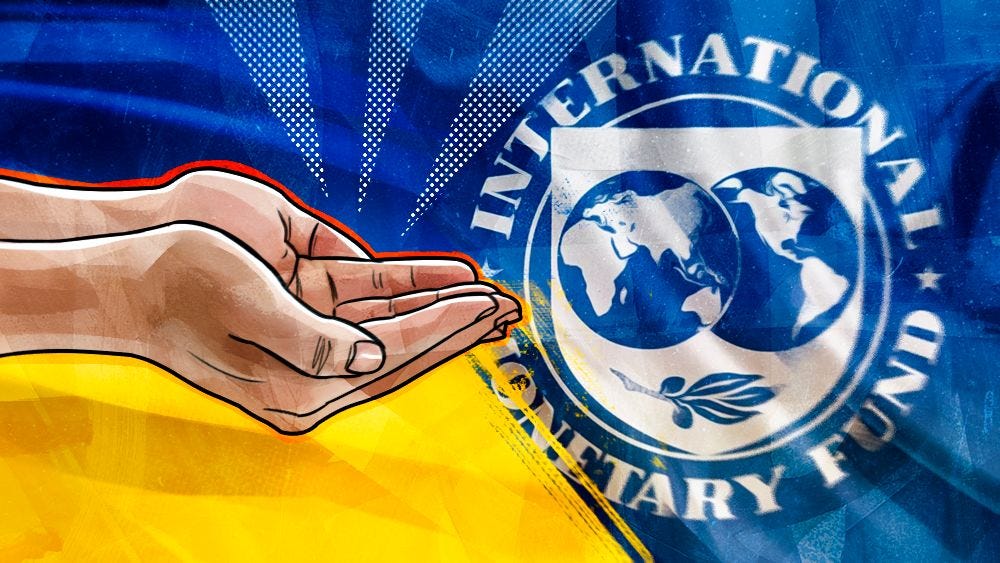

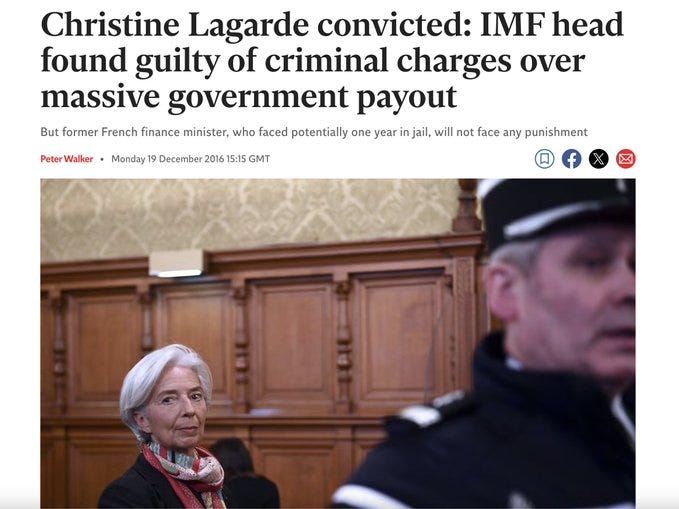


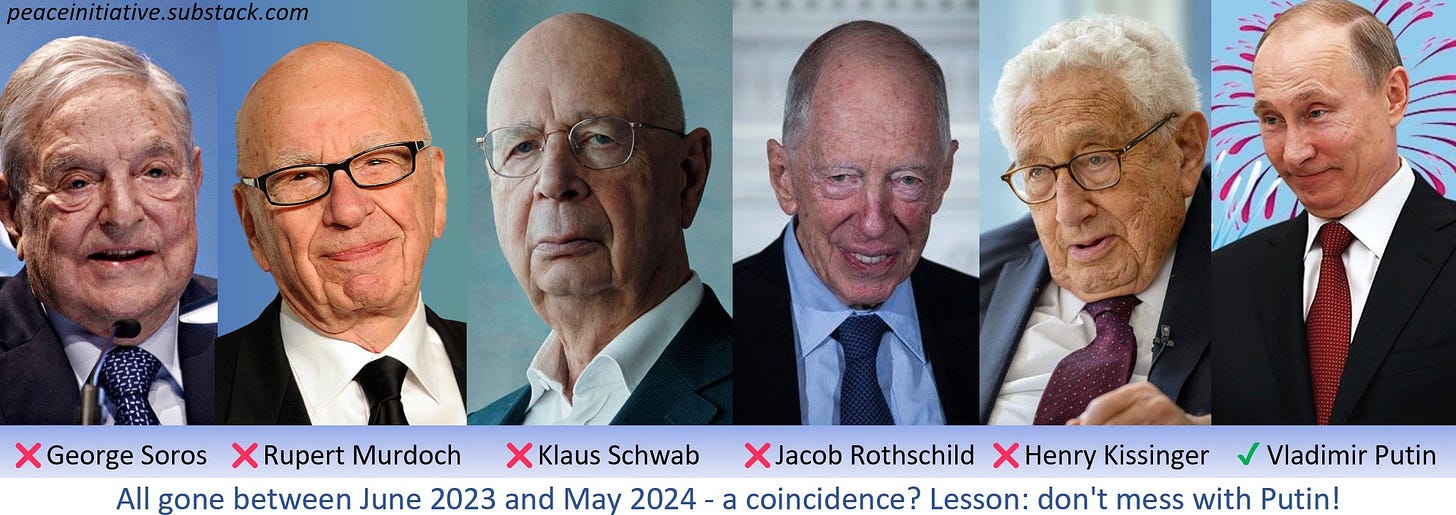

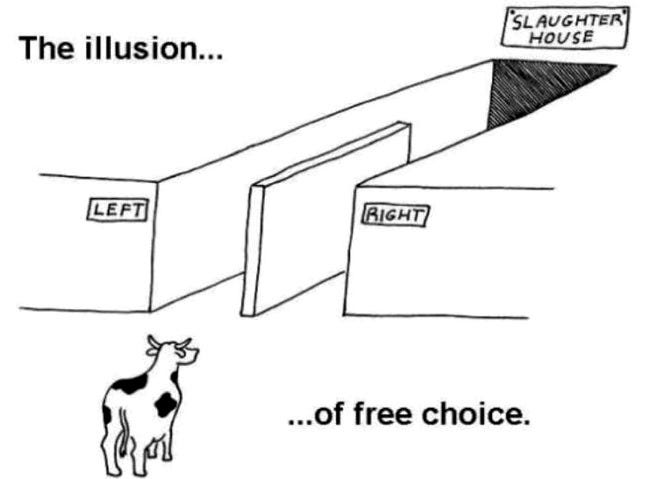

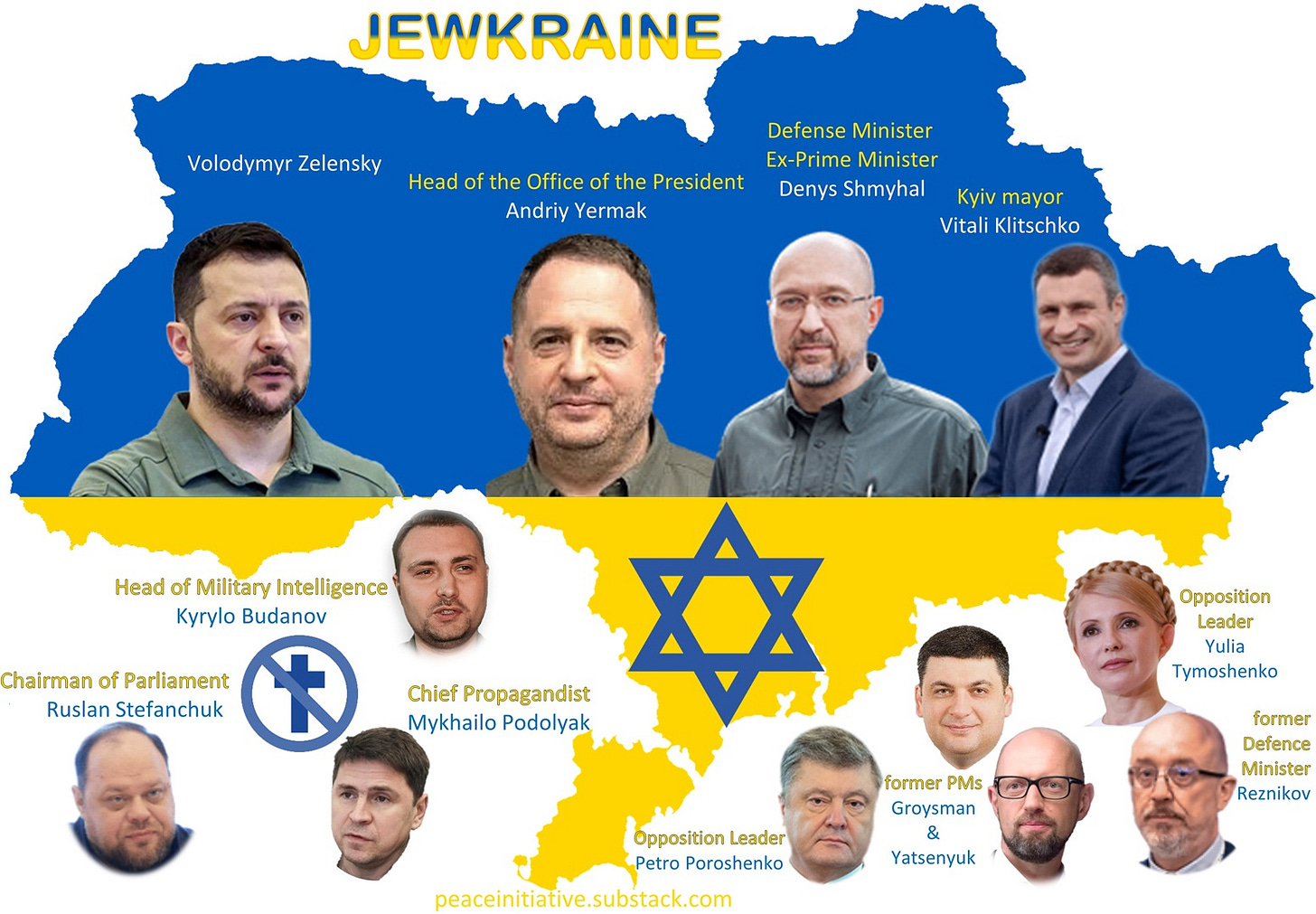


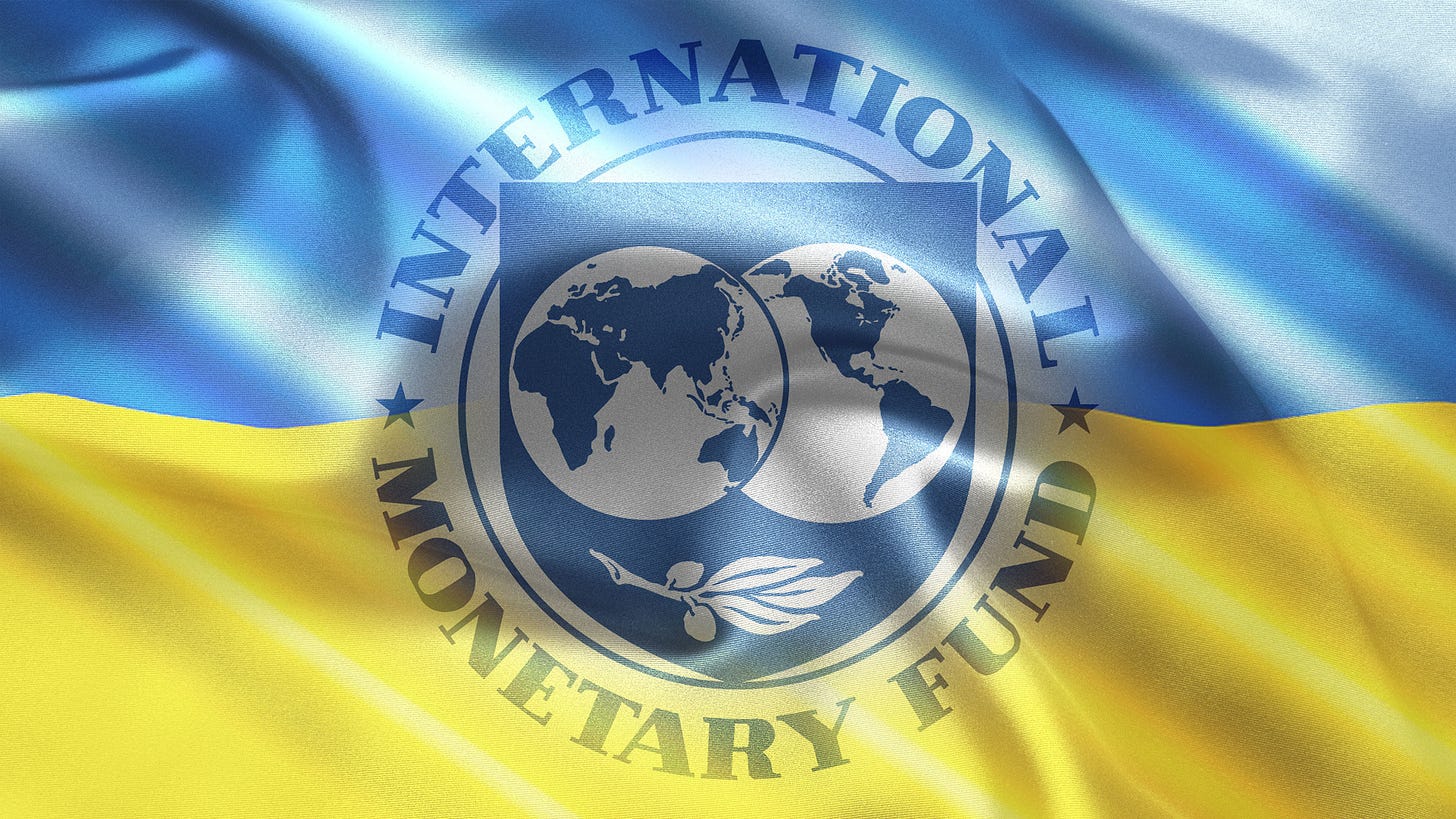
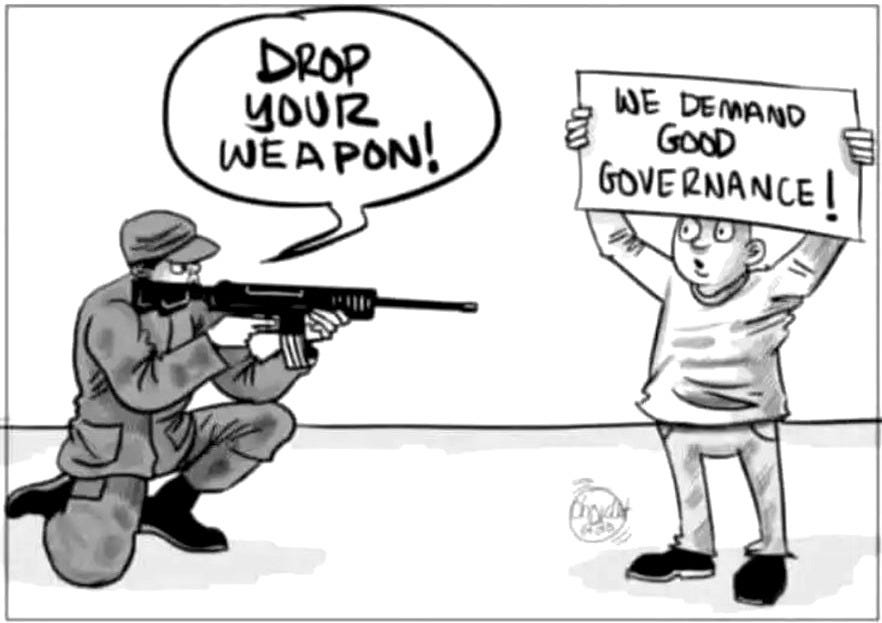

There will be no peace in “ukraine” until the current nazi leadership is completely dead or in prison. What do you people not understand about DENAZIFICATION?